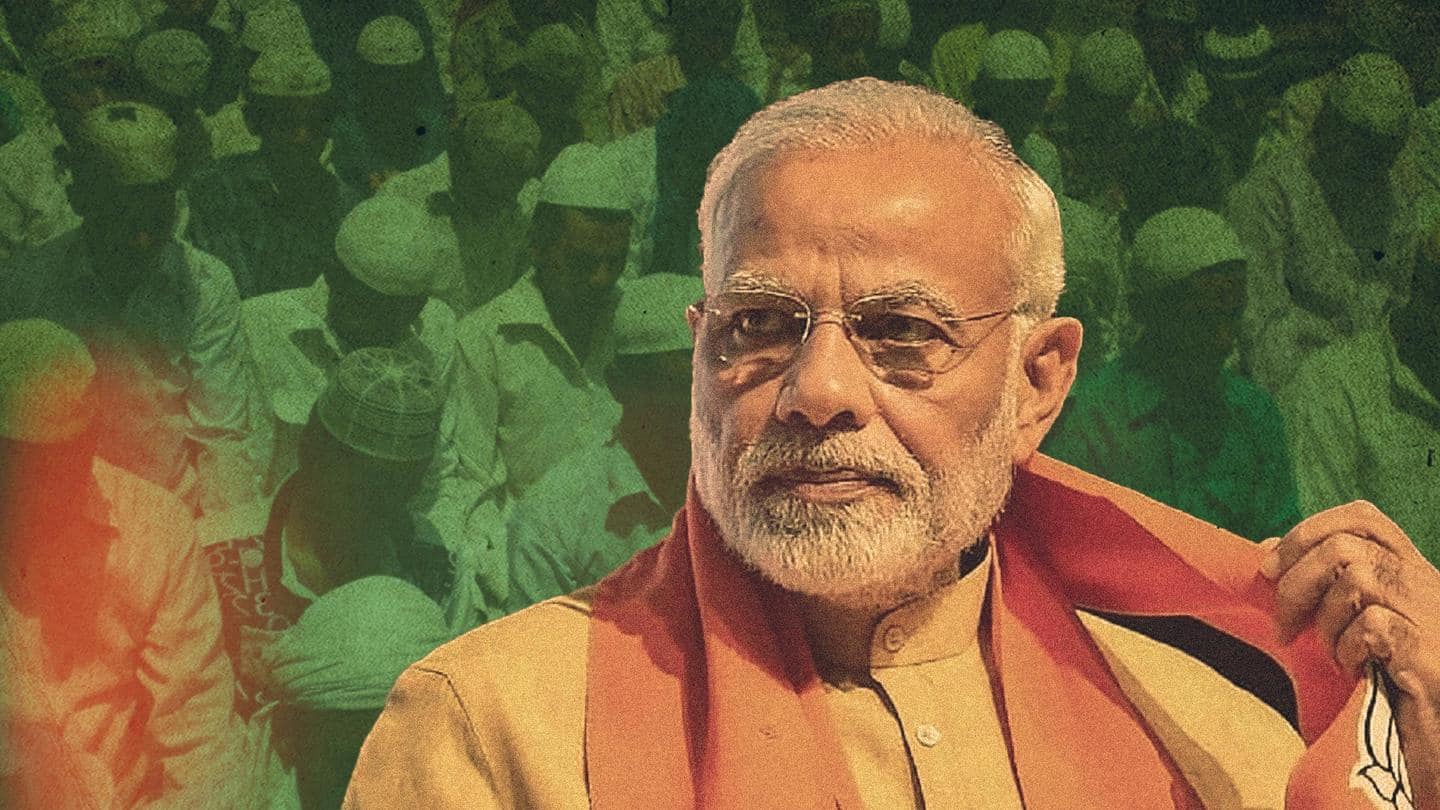
Why is BJP reaching out to Pasmanda Muslims? Who're they?
What's the story
At the recently concluded Bharatiya Janata Party (BJP) national executive conclave in Hyderabad, PM Narendra Modi made a special mention of Pasmanda Muslims and emphasized the need for their social empowerment.
In fact, the UP BJP says their chances of gaining Pasmanda Muslims' support improved after nearly 8% of them backed the BJP in the 2022 Uttar Pradesh Assembly elections.
But who are they?
Context
Why does this story matter?
According to The Wire, certain Muslim associations in several states are increasingly referring to themselves as caste-oppressed Muslim communities by using the Persian word Pasmanda—meaning "left behind."
The BJP appears to have already begun courting the community after Modi's call.
Interestingly, Danish Ansari, a Pasmanda Muslim from eastern Uttar Pradesh's Ballia, was recently named the Minister of Minority Welfare in CM Yogi Adityanath-led government.
Profile
Who exactly are Pasmanda Muslims?
The Pasmanda Muslim community is reportedly the strongest in UP, where it makes up roughly 75% of the total Muslim population.
In fact, Pasmandas constitute 85% of the total Muslim population in the country.
The Pasmanda community is made up of Dalit and backward Muslims who have been fighting a separate social battle within Muslim society.
Fact
85% of Indian Muslims are caste-oppressed Pasmanda Muslims
Among Indian Muslims, 15% are regarded as the upper class or upper caste, known as Ashraf.
The remaining 85% are referred to as Arzal and Ajlaf, which constitute Dalit and backward Hindu converts.
Reportedly, the affluent segment of the Muslim community looks down on them since they are economically, socially, and educationally backward.
This oppressed section of Indian Muslims is known as Pasmanda.
About
Pasmanda community emphasizes social identity over religion
According to The Print, the Pasmanda movement emphasizes social identity over religion.
Its slogan, "Dalit-pichda ek saman, Hindu ho ya Musalman (All Dalit-backward sections are equal, whether they are Hindu or Muslim)," emphasizes the unity of Bahujan communities across religions.
Meanwhile, some Pasmanda Muslim academics have also been demanding that their community be counted as part of a caste-based census.
Reason
Why are Pasmanda Muslims supporting BJP?
A Samajwadi Party leader from the Pasmanda community earlier revealed their party's Pasmanda candidate in UP's Barabanki district "raised concern over the shift in votes of Pasamanda Muslims toward BJP" in the Assembly polls.
After reaching a village of Pasmandas, the villagers told him that the BJP government gave them houses, toilets, rations, LPG cylinders, and affordable medical facilities, which other parties never provided.
Information
Who are Ashraf Muslims?
The Ashrafs are people of Central or West Asian descent. Among them are the Sayyids, Sheikhs, Mughals, and Pathans. Those who converted to Islam from so-called upper-caste Hindu communities, such as Muslim Rajputs, Tyagi Muslims, Chaudhary Muslims, etc., are also considered Ashraf in India.
Quote
'Owaisi and the RSS are suddenly talking about Pasmandas'
"Pasmanda has now become an important word," Ali Anwar—an ex-Patna MP who founded Pasmanda Muslim Mahaz in 1998, one of the most important associations—earlier told The Wire at an event in January.
"People like [AIMIM's Asaduddin Owaisi] and the RSS are suddenly trying to talk about Pasmanda. We are meeting so...our people don't come under the sway of either of them," he had said.
Fact
'Our fight isn't about Hindu vs Muslim'
Akin to Brahmanism in Hinduism, social inequality is referred to as Syedism among Muslims.
Amaan Akhtar—an organizer of the January event under Pasmanda Adhikar Manch—had told The Wire, "Our fight is not about Hindu vs Muslim. It's a fight for social justice."
Notably, since the beginning of the 20th century, various movements have been launched against this dominance and casteist marginalization among Muslims.